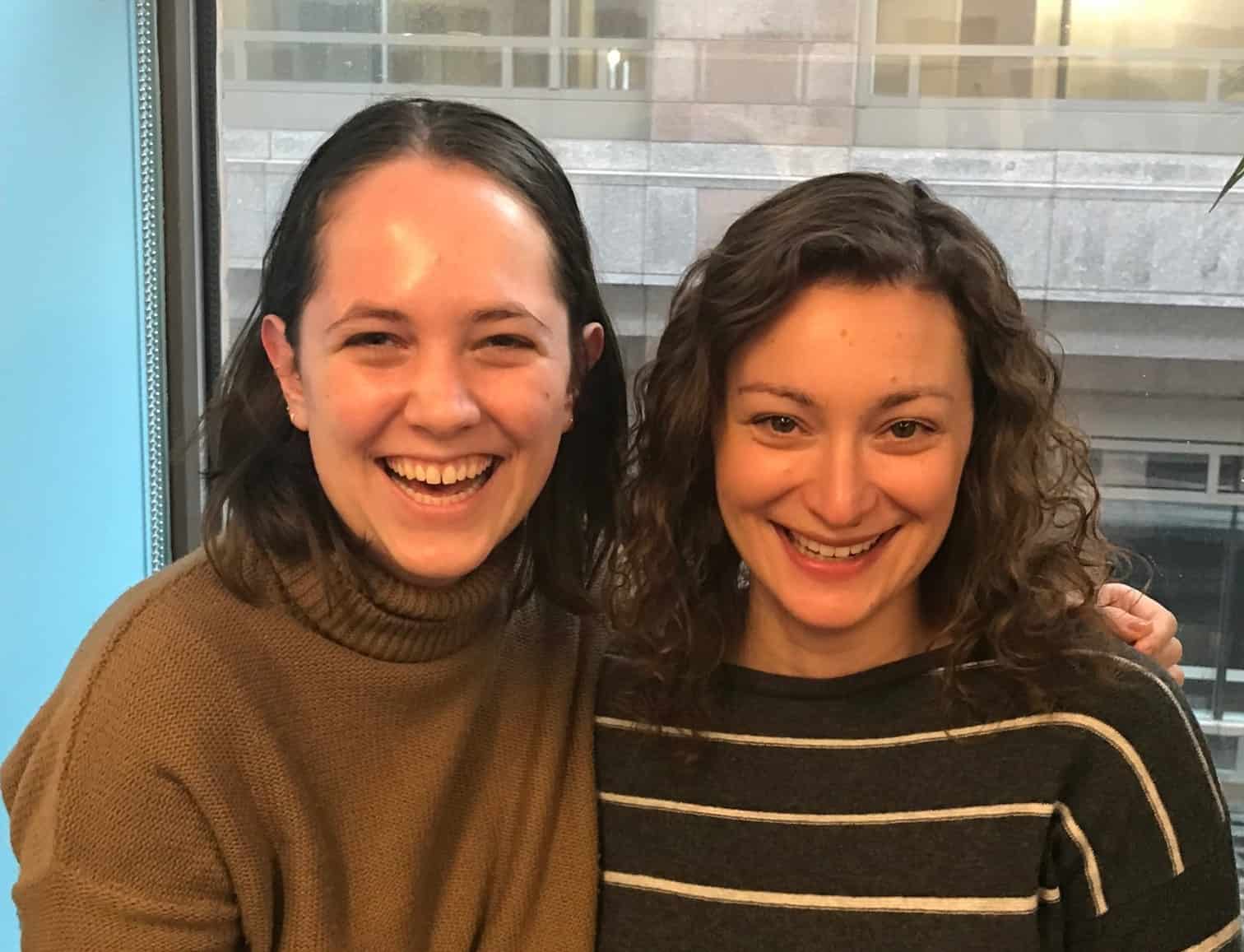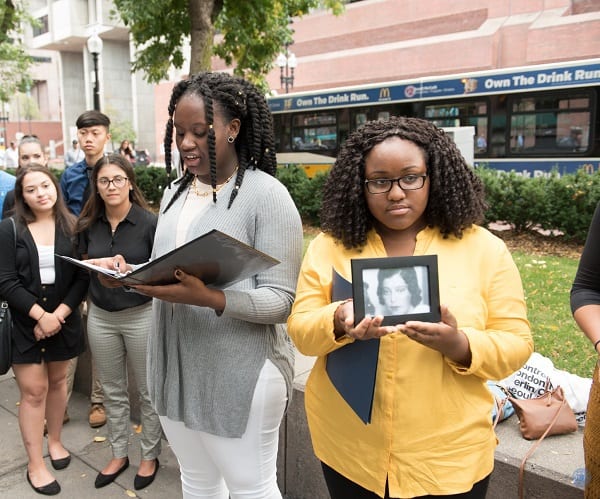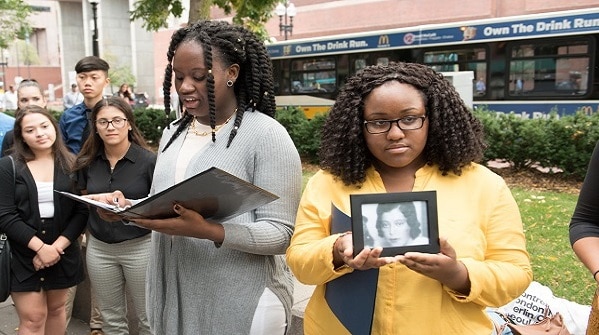
This week: a message from JCRC’s Emily Reichman, Director of Service Initiatives (R), and Shira Burns, JCRC Communications Staff.
On Monday, in an auditorium full of high school students visiting the United States Holocaust Memorial Museum, Holocaust survivor Esther Starobin asked: “Is there anything specific you’re hoping to see here today?” Sherley Maximin’s hand shot up.
Sherley is this year’s first place winner of JCRC’s annual Israel Arbiter Essay Contest for high school students, and one of over 200 who submitted essays on themes related to the Holocaust. This Monday, she and three other student winners from schools across Greater Boston joined JCRC to spend the day at the museum in Washington, D.C.
In her essay, Sherley, who moved to Boston from Haiti two years ago, reflected on the life-changing encounter she had with local Holocaust survivors during a visit to the New England Holocaust Memorial last summer after it was vandalized by a student from her school. The students came together to let the Jewish community of Boston know that this student from their school did not represent them:
“That experience went beyond all the things that I could ever read in textbooks. I had such a meaningful conversation with Dr. Ornstein, a survivor. Nothing is comparable to listening to a survivor share their experience. I realized that there is much more to pay attention to. Way too often, we forget the causes of historical events like the Holocaust and I think we must commit to point to the signs when they arise. The lessons that one can learn from the history of the Holocaust are endless. This experience definitely strengthened my desire to learn more.”

This past week, days before Sherley’s visit to Washington, we marked the 80th anniversary of Kristallnacht. “The Night of Broken Glass” ushered in a time of unparalleled hatred and devastation that led to the loss of six million Jewish lives.
In 1938, we were isolated and alone. Today, the strength of our community is demonstrated through our relationships and our alliances, and through our neighbors’ determined refusal to remain silent in the face of hatred and bigotry.
And in Boston this Tuesday, under a heavy downpour, we gathered at the New England Holocaust Memorial (NEHM) to acknowledge a significant gift made to the Memorial by the Glaziers Union, part of the International Union of Painters and Allied Trades District Council 35. The Glaziers have been involved in the Memorial from the beginning, building and installing the original Memorial in 1995, made up of six iconic glass towers with 132 glass panels.
After the Memorial was vandalized last year, the union felt compelled to stand with the Jewish community and to uphold the integrity of this space that is sacred to so many. “It is our moral obligation to stand up and to speak up,” said Wayne Murphy, Director of Government and Public Affairs for the union. In his remarks, Murphy also noted that his union responded to last year’s vandalism by stepping in to repair the damage, offering to perform the work pro bono.
We were also joined by Boston Mayor Marty Walsh, who has been steadfast in his commitment to the Jewish community, showing up at event after event as we find ourselves under assault. He reflected on the “acts of anti-Semitism happening all over our country,” including the Pittsburgh synagogue massacre of October 27, in which 11 Jewish worshippers were murdered.
At JCRC we don’t take those relationships and alliances, nor the lessons of the Holocaust, for granted. That is why we provide education and engagement, connected with the Memorial, in Boston’s broader civic space beyond the Jewish community.
Displayed on the wall of the United States Holocaust Museum is a quote from Elie Wiesel’s remarks at the Dedication Ceremonies for the Museum on April 22, 1993: “This museum is not an answer. It is a question.” The museum, and the Holocaust itself, is not finite, but rather a living, breathing history that informs our collective responsibility. An enduring communal memory of the Holocaust is crucial.
And what was Sherley Maximin’s answer to that question on Monday about her hopes for the day?
“I’m hoping to see aspects of the exhibit that inspire me to recommit to resilience and hope.”
We hope that we met Sherley’s hopes this week. And her hopes were met for us as well – when we saw Sherley and her high school community, and the Glaziers Union, stand up in the face of acts of hatred this past year. Their actions, and the actions of so many others, remind us of what is good in our city. They inspire us to recommit, with resilience and hope, to ensuring that future generations of Bostonians will do so for years to come.
Shabbat Shalom,
Emily & Shira




